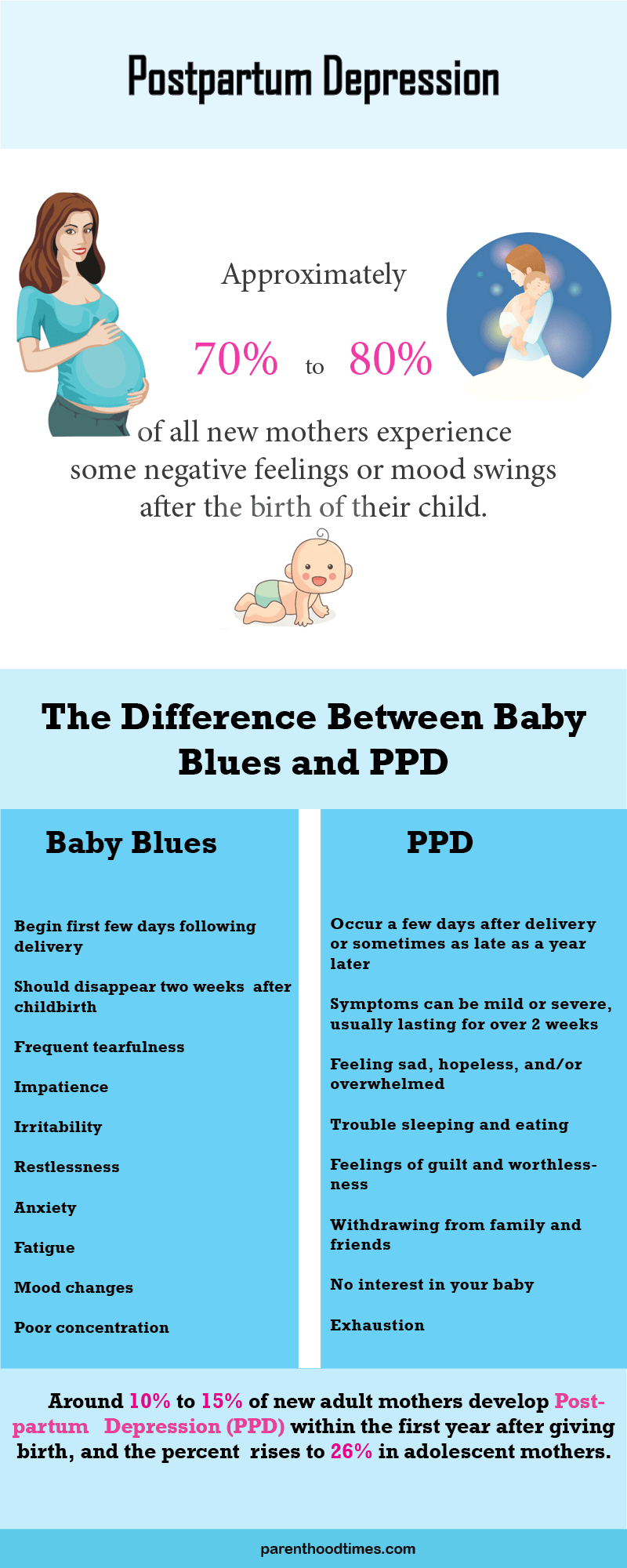How To Deal With Emotions After Giving Birth
Motherhood is an uncertain time. We are worried, stressed, and excited at the same time! We worry about the changes motherhood brings, and at the same time, we feel excited and in love with the little one growing inside us. As a woman, we all know that our body and hormone changes during and after pregnancy. But how much do you know about postpartum emotions? And are you prepared to cope with emotions after giving birth?
The transition to motherhood comes with some unexpected feelings for new moms. Around 81% of new moms experience negative emotions after giving birth, according to a new study. So post-pregnancy emotions are normal among new moms. However, they can last up to three years if not dealt with.
There are a few emotions you may find yourself dealing with after pregnancy. Don’t worry – there are ways to deal with these postpartum emotions.
Common Postpartum Emotions After Giving Birth
1. Baby Blues
2. Postnatal/Postpartum Depression
3. Postpartum or Puerperal Psychosis
1. The “Baby Blues”
Being a mom can be both exciting and exhausting. It can bring so much excitement and joy, and at the same time, unexpected fear and anxiety.
You may feel angry, sad, tearful, unhappy, exhausted, irritated, and tired. These feelings are commonly known as the “baby blues.” Body and hormone changes after pregnancy; lack of quality sleep and colicky, cranky, or otherwise difficult babies make the matter worse for some new moms. The good news is these changes of emotions last no more than a few days or weeks. “However, don’t confuse the “baby blues” with postpartum mood and anxiety disorders,” warns Karen Kleiman, author of Good Moms Have Scary Thoughts: A Healing Guide to the Secret Fears of New Mothers.
2. Postnatal/Postpartum Depression
The signs and symptoms of postpartum depression are similar to the baby blues, but they are more severe and last longer.
Somewhere between ten and twenty-five percent of new moms struggle with postpartum depression once they give birth to their first child. How can you tell if what you’re experiencing is baby blues or if you have postpartum depression (PPD)?
Early recognition with proper care is very important for postpartum depression. “The very damaging, frightening part of postpartum is the lack of perspective and the lack of priority and understanding what is really important,” says Brooke Shields, an award-winning actress and bestselling author.
3. Postpartum Psychosis
Postpartum psychosis is one of the rarest but most serious postpartum emotions. The signs and symptoms of postpartum psychosis are different from the above two new mom emotions. Signs and symptoms may include:
- Hallucinations
- Delusions
- Confusion and Disorientation
- Thoughts of Harming or Killing the Baby
- Excessive Sleep Disturbances
- Excessive Energy and Agitation
- Paranoia
Yes, there is hope and promise for those who struggle with this disease. But it’s important to seek help as soon as possible. Remember that there is help out there, there is hope, and you are not alone.
How To Cope With Emotions After Giving Birth
If unnoticed and untreated, postpartum emotions can affect you and your baby badly. Although it can seem overwhelming when you find that it’s happening to you or someone you love, it’s important to realize that there are ways you can deal with negative emotions after giving birth. Below are some strategies you can follow to help minimize the effects and even lower the likelihood of it occurring in the first place.
Get Some Sunlight Every Day
Exposure to sunlight can benefit new moms who suffer from non-seasonal depression or premenstrual dysphoric disorder. Exposing your newborn to sunlight is beneficial too. Try to get some direct sunlight an hour after sunrise and an hour prior to sunset every day. It’s the best time to expose your baby to sunlight.
If you live in a gloomy dark place, light therapy is more likely to help boost your mood and energy.
Seek Support from Your Partner
The transition to motherhood is a difficult journey, and it takes a toll both on your health and relationships. Symptoms of the baby blues generally dissipate or peak between two to three weeks after the baby’s birth. But it can create a lasting impact on your relationship with your husband. The best thing you can do is to talk to your partner about your feelings.
Gottman’s research found that the strength of the couple’s friendship can be a key factor in reducing baby blues and postpartum depression. Feeling supported by your significant other makes the transition to parenthood more manageable and enjoyable for both partners.
Make Time for Self-Care
It is important to schedule some dedicated “me time” once a week. Taking time to recharge is necessary for your short- and long-term health. Go for a walk, take a nap, go to a movie, or do some yoga and meditation.
Exercise When You Can
Exercise can be an effective way to keep your postpartum emotions at bay. If you can’t get to a gym or work out on your own, look for a mommy and baby exercise class. You can also join the local mom’s walking group that does a daily stroller trail walk – an easy way to get in some steps and breathe fresh air.
Make Time to Rest
Lack of quality sleep is the main reason behind negative postpartum emotions. New parents face up to six years of sleep deprivation, a recent study says.
Try to get enough rest when your baby is sleeping and adjust all your routine according to your baby’s sleeping schedule. This goes hand in hand with support from your partner.
Maintain a Healthy Diet
The many physical benefits of maintaining a healthy diet are well-known. However, getting into the habit of eating nutritious foods can help you to elevate your mood, energy levels, and overall sense of well-being. Try to stay away from the sugary snack foods, and go for:
- Fruits
- Vegetables
- Foods high in fiber
Many women feel that they need to lose pregnancy weight as soon as possible. “Forget about baby weight, this is a period to bond deeply with your new baby and to rest and recover,” recommends Heng Ou, a renowned author on pregnancy, postpartum, and beyond.
Set Realistic Goals
As a mom, you need to remember that it isn’t easy creating a tiny miracle, and going back to ‘your old selves’ should not be a stressor! After all, you will never actually be the same person. You are a mom now! There is no greater blessing than being called MOM!
Develop a Support Network
Having a strong support network is very important for a new mom. Positive social contact relieves stress faster and more efficiently than any other means of stress reduction. Join a local Mommy Support Network in your area. Schedule a monthly girls’ night so that you and your friends can connect. Don’t be afraid of what others are going to think. It’s okay to ask for help and also shares mixed emotions of gratitude and fear.
Talk to Your Health Care Provider About Your Feelings
It’s normal to feel emotional after giving birth. But you need to figure out whether it’s just the baby blues or a serious mental issue like postpartum depression. Even if it’s just baby blues, don’t ignore your feelings. These feelings get worse with time and can lead to irritability, severe depression, and even suicide without proper medical help.
It’s a good idea to make an appointment with your doctor as soon as you notice the above symptoms after birth, especially if they don’t fade after a couple of weeks. Your doctor can point you in the right direction to get the support you need.
Support for Postpartum Emotions After Giving Birth
Baby Blues Connection is a great source of support, information, and resources for women and families coping with pregnancy blues and postpartum mood disorders.
Edinburgh Postnatal Depression Scale – A effective tool to detect postpartum depression.








